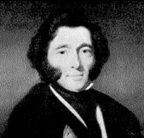To the Right Reverend Vincent Nichols, Archbishop of Westminster:
Dear Archbishop Nichols,
You have asked the Coalition government to review 2012 immigration legislation preventing spouses from outside the European Economic Area from joining their British husbands or wives if they (the non-EEA spouses) earn less than £18,600.
It’s dispiriting to see families with one British member split up. I’ve been in a long-distance relationship, and it hurt; I had cause to remember the French prayer to Our lady of Lourdes, which urges: priez pour ceux qui aiment et sont partis.
But if I may ask you to tune your political antennae to a wider wavelength, I hope you will see that years of poorly-controlled immigration has caused such a population rise in this country that in 2012 we were delivered a stark wake-up call: during the UK’s second-wettest year on record, our drinking-water nearly ran out.
We in Cambridgeshire have seen the benefits immigration can bring with Pinoy – Filipino men and women – coming to do healthcare jobs in the early 2000s and fitting in seamlessly with our Judaeo-Christian heritage. But a proportion of them have been forced out of their jobs due to EU rules saying that when contracts come up for renewal EU citizens must be prioritised.
This, I think is the crux of the matter: British citizens, whom you so rightly point out are suffering, are put in this position because the government has extremely limited powers to act on couples when neither of them are from Great Britain.
Like many others, including members of your flock, I look forward to the day when Britain’s politicians can truly govern within British borders and prevent British people from suffering. I hope you will speak out to say that the desire of British people to be governed solely by British politicians is by no means sinister or toxic, so that injustices like those you have identified can be consigned to history.
Yours faithfully
Gerry Dorrian
300 words
Resources
Catholic leader brands immigration policies 'inhumane' Miranda Prynne, The Telegraph, 16 December 2012
Changes to the family migration Immigration Rules come into effect on 9 July 2012 - UK Border Agency
Met Office: 2012 was UK's second wettest year on record - bbc.co.uk
Drought Declared Across 17 More Counties As Warning That Water Shortages Could Last Until Christmas - Huffington Post, 16 April 2012
immigration laws limit the days of being enriched - 300 words




